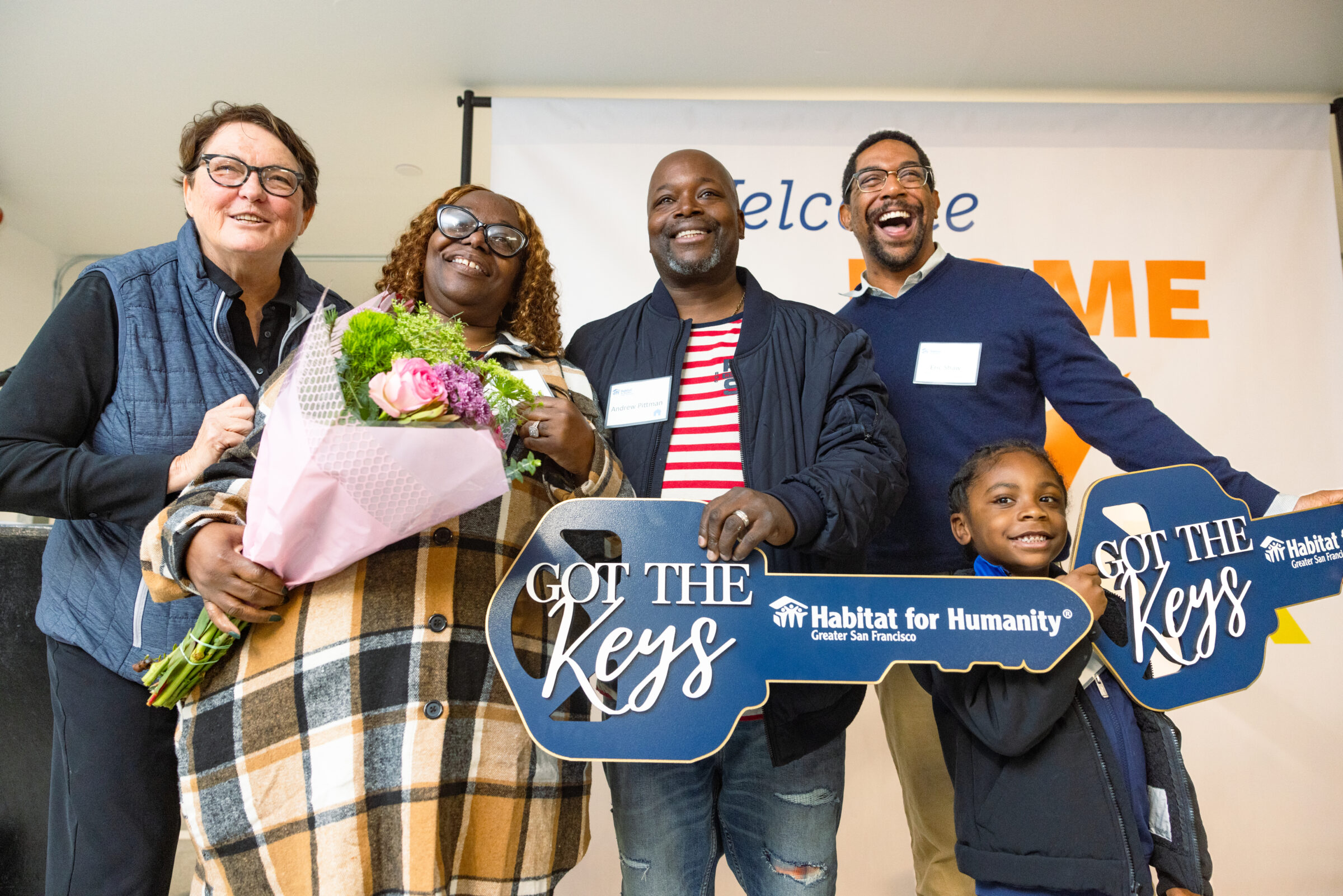We’d love to keep in touch. Sign up for our newsletters and we’ll send you monthly emails with the information and news that interests you!

We believe everyone deserves a stable and affordable place to call home and we are increasing access to homeownership for those who have historically been locked out. One way we are turning the tide on long standing barriers to homeownership is through our Advancing Black Homeownership inititative, by increasing access to homeownership our communities thrive.
How The Advancing Black Homeownership Initiative Came to be
The origins of Habitat for Humanity are deeply rooted in racial equity from the beginnings as a racially integrated working farm in Georgia in 1942. Since our San Francisco affiliate was created in 1989, we too have had racial equity as a founding principle of our affiliate. As a leader in affordable homeownership, we are uniquely positioned and committed to advancing Black homeownership.
Many families, and Black Americans in particular, face obstacles to homeownership due to the lingering effects of racially discriminatory housing policies. During COVID and post COVID, it was apparent to Habitat for Humanity International and the nation that the Black community was especially impacted by inequities during the pandemic.
In response to this, the Advancing Black Homeownership initiative has been developed by Habitat for Humanity, with inputs from affiliates across the country. While the direct goal of this is to increase the number of Black homeowners, we believe this work and strategy will also benefit other marginalized populations.
31.3%
The racial homeownership gap between Black and white households in the U.S. is 31.3%.
1%
Black households own about 1% of wealth in the U.S., which has barely budged from the 0.5% of wealth they owned in 1863 — when the Emancipation Proclamation was signed.
45%
Just under 45% of Black households own their home, compared with 74% of white households.
Inequities in Homeownership
Our Commitment to You
“There’s an ingrained societal suspicion that intentionally supporting one group hurts another. That equity is a zero-sum game. In fact, when the nation targets support where it is needed most — when we create the circumstances that allow those who have been left behind to participate and contribute fully — everyone wins. The corollary is also true: When we ignore the challenges faced by the most vulnerable among us, those challenges, magnified many times over, become a drag on economic growth, prosperity, and national well-being.”
Angela Glover Blackwell
Founder in residence at PolicyLink and author of “The Curb-Cut Effect.”
Read inspiring stories of Habitat families who have achieved homeownership.
Let's stay connected
